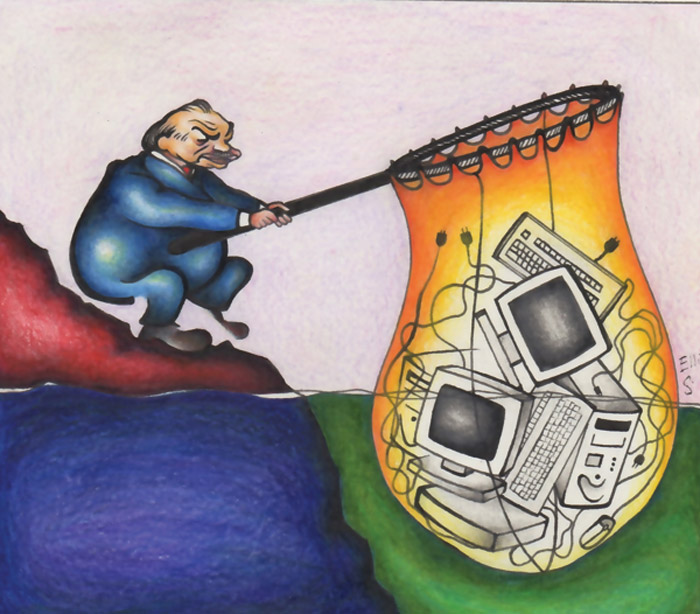For the past few years, Network neutrality has been one of the more under-the-radar issues in the American national debate.This partly changed at the start of this month, when U.S. President Barack Obama, barely a week after his party’s drubbing in the midterms, took a public stance in favour of the Federal Communication Commission (FCC) establishing rules prohibiting internet service providers (ISPs) from privileging any kind of online traffic over another. Net neutrality has become something of a cause célèbre for both activists on the left and a large community of technology publications, as concerns arise over continued consolidation amongst ISPs and mergers between ISPs and content companies. However, while the goals of advocates for an ‘open internet’ might require government regulation at this point, much of the blame for the current state of affairs might lie with earlier, short-sighted government regulation.
The term ‘network neutrality’ can be traced to Columbia University professor Tim Wu, who suggested the concept of controlling the ability of internet network operators to limit access to specific websites or slow down specific types of traffic. The distinction between network operators controlling the usage of total bandwidth and the use of specific applications is critical. To advocates, this is the difference between preserving the ‘open internet’ as we know it today, and creating a semi-dystopic world in which the internet functions almost like pay television, and access to some websites would be significantly more costly than others.
This vision is one that rightly strikes fear into the hearts of the net’s denizens. The controversy here harks back to the fear over the Stop Online Piracy Act, a 2012 bill in the U.S. Congress that sparked protest blackouts of major sites like reddit and Wikipedia. The legislation was cited by critics as opening up the internet to government censorship for corporate interests, based on grounds of alleged intellectual property theft. Here, the supposed threat is corporate censorship by traffic throttling.
The situation with net neutrality is complicated by the relatively static market in telecom providers. In both the U.S. and Canada, consumers have little choice for cable, phone, and television providers in their particular area, and thus little competition on price, bandwidth, and—perhaps most infamously—customer service.
In a 2009 FCC study on broadband access, the U.S. was middle of the pack on internet affordability, with Canada ranking 23rd out of the 30 countries examined. This price disparity is a direct result of a lack of competition in the ISP area, and net neutrality is at best treating the symptoms of a much larger, deeper-seated problem—one that governments helped to create. While ISPs in a net-neutrality-free world could engage in abusive practices, in a world where there is true consumer choice and competition, this ability would be checked by consumers actually being able to switch to another service provider.
The entrenched positions of ISPs like Comcast and Time Warner Cable are also the result of government action—but at the local level. Unlike the app development field, where low barriers to entry have allowed almost comical levels of development, providing internet service is a task that requires substantial legal overhead, high startup costs, upfront infrastructure investments, and other barriers that entrench the big companies. Local governments compound the problem by charging companies exorbitant rates for the ability to place their wires on public property and attach them to utility poles. The widely praised Google Fiber deployments in several midsize cities in the U.S. were largely facilitated through a loosening of these regulations. On the other end, lobbying by telecom companies has resulted in several states passing laws that make it harder for municipalities to offer their own broadband services, heading off another source of competition.
It is clear that the net neutrality debate will not end soon. As the FCC continues to grapple with how to ensure the internet retains its best qualities, a larger issue remains. No matter how the government reclassifies the internet, there will still be a complete lack of competition.








